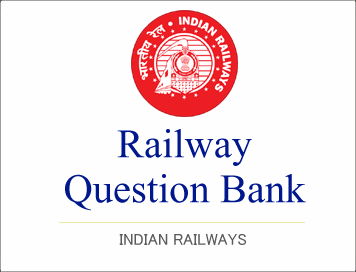RRB JOBS QUESTION BANK : JUNIOR ENGINEER (NON-AC) OFFICIAL LANGUAGE ACT AND RULES- QUESTIONS AND ANSWERS
QUESTION BANK FOR SELECTION TO THE POST OF JUNIOR ENGINEER (NON-AC)
Part – C
(OFFICIAL LANGUAGE ACT AND RULES)
Questions and Answers:
Q.1. Why is Hindi divas celebrated and When? Or What is importance of Hindi Divas?
Ans: 14th September is celebrated as Hindi Day because the Constituent Assembly of India had adopted in Devanagari Script as the Official Language of the Union on 14th September 1949.
Q.2 What are Documents to be issued in Hindi-English bilingual form under Section 3(3) of OL Act, 1963?
Ans The following documents have to be issued in Hindi-English bilingual form simultaneously
(i) Resolutions, general orders, Rules, Notifications, Administrative reports or other reports or Press communiqués.
(ii) Administrative and other Reports and Official Papers lay before a House or the Houses of the Parliament.
(iii) Contracts and agreements executed and licenses permits, notices and forms tender issued.
Q.3 How many members are in parliamentary Committee of Official Language and how they are elected?
Ans The Committee consists of thirty members, out of them twenty members shall be from the House of the People (LOK SABHA) and ten shall be from the council of states (RAJYA SABHA). They are elected respectively by the members of the house of people and the members of the Council of States in accordance with the system of proportional representation by means of the single transferable vote system.
Q.4 What are provision of OL Act, 1963 that are not applicable to Jammu and Kashmir?
Ans: The provisions of section 6 and section 7 shall not apply to the state of Jammu and Kashmir.
Q.5 What do you mean by proficiency in Hindi?
Ans: A Government servant who have studied SSLC/SSC/Matric or equivalent in Hindi Medium. or Studied Hindi as an optional subject in Inter or Degree or at higher level. Passed SSC/Matric with Hindi as language with minimum pass marks.
Q.6 What do you mean by working knowledge in Hindi?
Ans: A Govt. employee who have studied Hindi as a Second Language/Third Language in SSLC/SSC/Matric or equivalent or Inter/Degree or Passed Hindi Pragya examination or prescribed Hindi Dept. Exam (i.e. Prabodh or Praveen)
Q.7 Who is responsible for use of Hindi or English for issuance of documents comes under Section 3(3)?
Ans: Both Hindi and English shall be used for all documents referred to in sub section (3) of section 3 of OL Act. 1963 and it shall be the responsibility of persons signing such documents to ensure that such documents are made, executed or issued both Hindi and English.
Q.8 Can any Govt. servant write notes etc. in Hindi only?
Ans: Yes, As per Rule No.8 of OL Rules, 1976, an employee may record a note or minute on a file in Hindi or in English without being himself required to furnish a translation there of in the other language.
Q.9 Who is responsible to implement the Hindi in Govt. Offices?
Ans: It shall be the responsibility of the administrative head of each Central Govt. Office to implement official language Hindi in their offices.
Study Kit for Railway Recruitment Board (RRB) Exams
<< Go Back to Main Page
Courtesy: RRB
